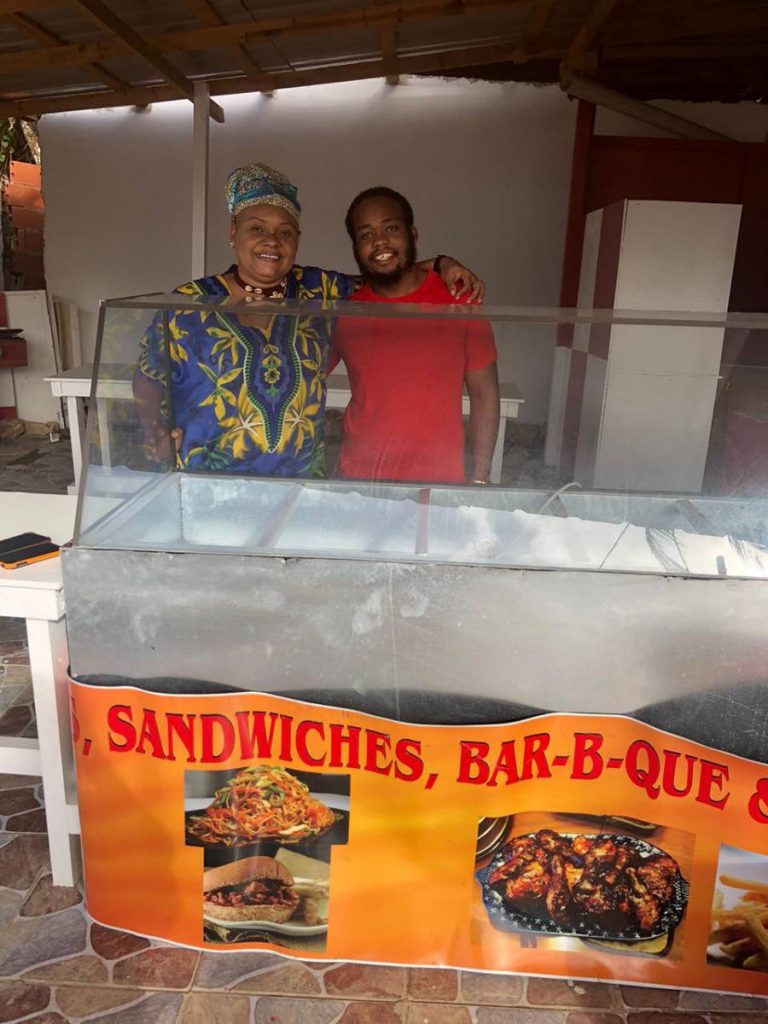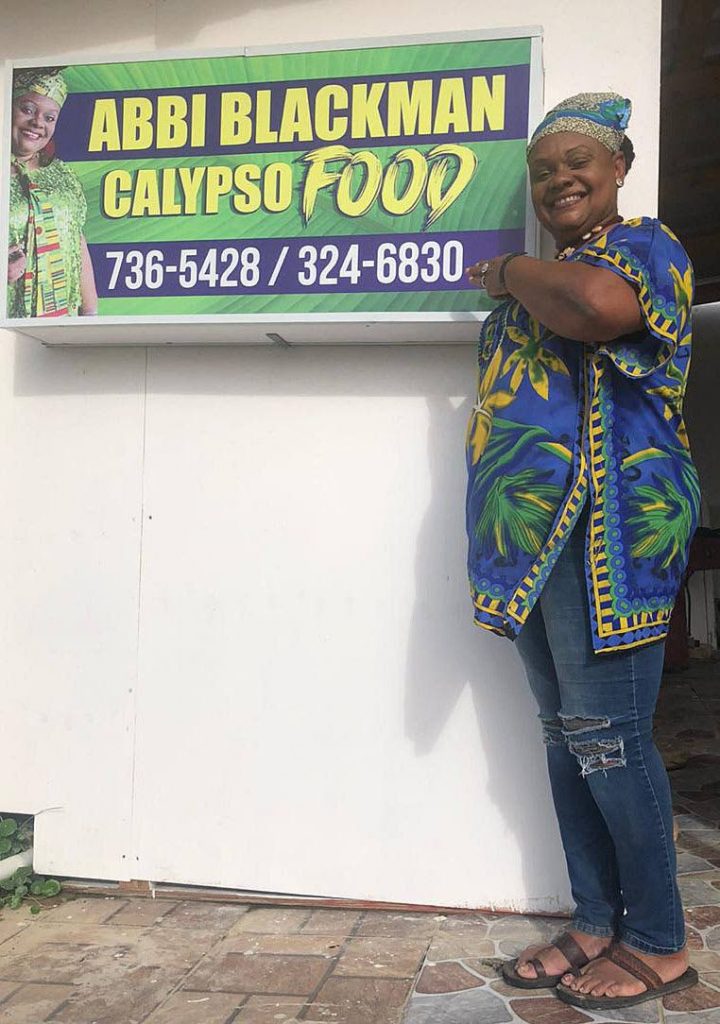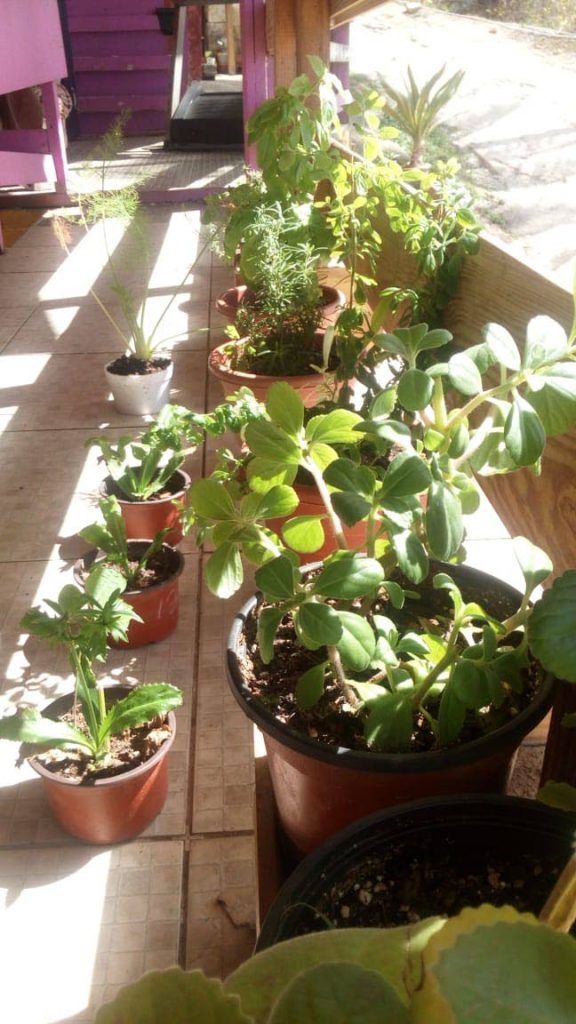Abbi staying alive

RAS Shorty I’s legacy, passed on to his bloodline, is much more than his inspiring music. The man who gave the world the soca and Jamoo genres also passed on his resilience and creativity to his talented children, his third and more generations.
It is these gifts his eldest, Abbi Blackman, is able to draw on in this time of unpredictability.
Planning for her future when the culture can no longer sustain her and her family, the “50-something"-year-old Abbi invested in the tourism industry.
Six years ago, she started Kaiso Cabin, a guest house which includes a large one-bedroom apartment, with a kitchen and living room, and a two-bedroom house on the scenic Maracas Beach.
Post Carnival, plans were set for the opening of her second restaurant, Calypso Food, at the same location, with her talented daughter Nailah Blackman agreeing to share the spotlight for this occasion.
The first restaurant, Calypso Soup, reopened its doors at Independence Avenue, San Fernando, two weeks ago when government implemented the first part of its six-phase recovery plan for the economy.
In addition to the Sparrow cow heel, Kitchener beef soup, Calypso Rose chicken soup, Stalin’s fish broth and Ras Shorty I corn soup, a variety of vegetables and meats with sada, fry bakes and roti, pelau and rice dishes are always available there.
No one predicted covid19 or the stay-at-home and physical distancing measures to flatten the curve.

-
With the tourism, entertainment and food industries – all the areas of her many endeavours shuttered – covid19 almost flattened Blackman.
“Ah ketching mih nenen with this closure,” she said in an interview.
A strong, resourceful woman whose talents include teacher to mother, songwriter, dancer, fashion entrepreneur, costume and creative designer, musician and women’s rights advocate, Blackman has refused to let that virus defeat or knock her down.
In this period of physical distancing, Blackman is finding ways to stimulate her creativity. Along with her culinary arts, she is continuing her craft, making belts, bags, hats and recently she started painting.
“If as an artiste you don’t express, you will dry up, and I don’t intend to dry up. I am a little older but I am still moving on,” she said in reference to her first hit, Young and Moving On.
Like her father, who was known for his green thumb, she returned to the land she cultivates at La Fillette.
“Shorty I always had a little garden. In Piparo we ate what he planted. He loved working with his hands, doing gardening and honing his craft as a joiner. That is where his energy came from. Creative people have to find all kinds of ways to use their craft.”
Her decision to fulfil one of the activities on her bucket list, “learning to drive in my 50s,” has helped to make the 30-mile journey, back and forth from Maracas to her La Fillette garden more acceptable.
In anticipation of the reopening of the economy and a desire to support her restaurant, on the urging of fellow calypsonian Ras Kommanda, who also supplied the cassava sticks, Blackman returned to the land.
The intention is to plant a lot of ground provision, along with green seasonings, she said. Around the guest house there is also a garden with tomatoes, sweet peppers, spinach, ochro, bodi, Spanish, French and mint thyme, basil, rosemary and chadon beni.
Asked about time management once the economy reopens, Blackman said she has a schedule: she goes to the beach and the garden three times a week and opens the restaurant and guest house from Thursday to Sunday. With the help of her family, she said, they manage.
She said she could not wait for the reopening of Maracas beach, not only to generate some income, but so she can wade and bathe in the water.
“For me, the beach is therapy for my knees.”
Blackman damaged her knees in a near-fatal crash in 2004, when the vehicle in which she and others were travelling ran off the road, down a 200-foot cliff and crashed into the rocks.

“That (damaged knees) ketch a--e to heal, and going in the water three times a week helped me to heal."
She also had to put on hold the recording of an album, including a song she wrote in the 1990s called We Will Survive, inspired by the 1990 coup attempt.
“The song was never recorded. My brother Isaac and I were doing some work to record it. Karen Eccles sang it in a song competition in the 90s and placed second.
She said that competition was a platform for many songs she wrote, but when that competition ended, so did the opportunity to write other genres of music.
“I have real songs,” she said crooning one of the verses of We Will Survive. She said she has not really tested the waters with genres other than calypso and soca, afraid of the reaction of her fans.

“Sometimes people put us in a box, but we are capable of so much more. I am working on a eight-track album of songs written a long time ago, when I was 17 and evolving, when we were living in Piparo. Songs with a soca jazz infusion, songs with a message because Shorty did not care for ‘latrine singers'” she laughed.
While still a few years from retirement age, Blackman does not intend to “park up.”
“I am inspired by Calypso Rose, who at age 80, is still representing and making her mark around the world.
“Park up? Nah. I am in my 50s and still going strong.”


Comments
"Abbi staying alive"